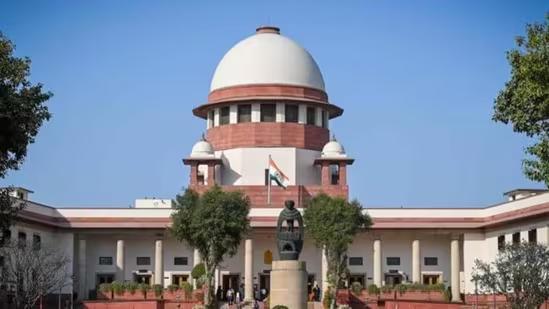
Court Can’t Grant Assent to Bills, Only Guv & Prez Can: Maha to SC
The age-old debate about the role of the judiciary in the legislative process took center stage in the Supreme Court recently, with the Maharashtra government arguing that courts cannot accord assent to bills and that this power solely lies with the Governor and the President. The comment was made by senior advocate Harish Salve, representing the Maharashtra government, during a hearing on a presidential reference seeking clarification on whether the court could impose timelines for the Governor and the President to deal with bills passed by state Assemblies.
The controversy surrounding the role of the judiciary in the legislative process has been ongoing for some time, with some arguing that the court has overstepped its bounds by imposing its will on the legislative branch. The Maharashtra government’s argument is that the court cannot grant assent to bills, which is a power exclusively reserved for the Governor and the President under the Constitution.
The presidential reference was filed by the President of India, seeking guidance from the Supreme Court on whether the court could impose timelines for the Governor and the President to deal with bills passed by state Assemblies. The reference was made in the context of the Maharashtra Assembly passing a bill to extend the term of the state’s legislative council. The Governor of Maharashtra, Bhagat Singh Koshyari, refused to give his assent to the bill, leading to the Assembly passing a resolution under Article 174 of the Constitution, seeking the President’s intervention.
The Maharashtra government argued that the court cannot impose timelines on the Governor and the President, as their role is purely ceremonial and advisory. The Governor and the President are expected to act on the advice of their respective Councils of Ministers and the Prime Minister, respectively. The court, on the other hand, is expected to play a limited role, ensuring that the legislative process is followed and that the Constitution is not violated.
The Maharashtra government’s argument is supported by the Constitution, which provides that the President and the Governor have the power to assent to bills passed by the state Assemblies and the Lok Sabha, respectively. The Constitution also provides that the court cannot interfere with the legislative process, except in cases where the Constitution is violated or where the court is called upon to interpret the Constitution.
The court’s role in the legislative process is limited to ensuring that the Constitution is followed and that the legislative process is transparent and accountable. The court cannot impose its own will on the legislative branch or substitute its judgment for that of the elected representatives of the people. The court’s role is to provide guidance and oversight, rather than to dictate policy or make legislative decisions.
The Maharashtra government’s argument is also supported by the Supreme Court’s own precedents. In the case of S.R. Bommai v. Union of India, the Supreme Court held that the Governor has the power to dissolve the Assembly, even if the majority of the members support the government. The Court held that the Governor’s decision to dissolve the Assembly was not subject to judicial review, as it was a political decision that lay within the exclusive domain of the Governor.
In a similar vein, the Supreme Court has held that the President’s decision to dissolve the Lok Sabha is also not subject to judicial review. In the case of S.P. Sampat v. Union of India, the Supreme Court held that the President’s decision to dissolve the Lok Sabha was a political decision that lay within the exclusive domain of the President, and was not subject to judicial review.
The Maharashtra government’s argument is not without its critics, however. Some argue that the court has a vital role to play in ensuring that the legislative process is transparent and accountable, and that the court should be able to impose timelines on the Governor and the President to ensure that this happens. Others argue that the court’s role in the legislative process should be limited to ensuring that the Constitution is followed, and that the court should not interfere with the legislative process except in cases where the Constitution is violated.
The debate surrounding the role of the judiciary in the legislative process is likely to continue, with both sides presenting strong arguments. The Supreme Court’s decision in this case is likely to have far-reaching implications for the relationship between the judiciary and the legislative branch, and will be closely watched by lawyers, politicians, and scholars alike.
Source:






